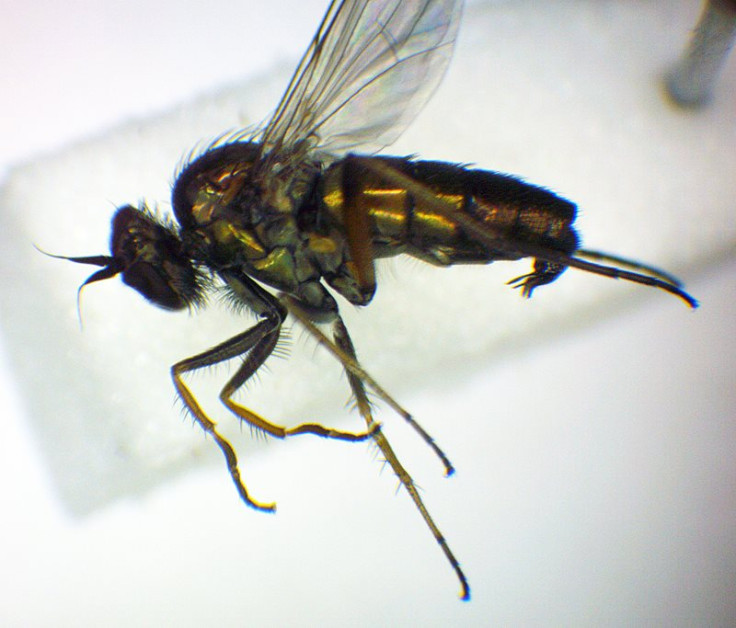'Extinct' fly spotted in Devon 150 years after last sighting

A fly that was thought to have been extinct for more than 150 years has been spotted in Devon.
The Raphium pectinatum fly was last officially noted 150 years back in Surrey on 19 July 1868.
The green metallic-looking species was thought to have died out shortly after this but naturalist Rob Wolton, a member of the Devon Fly Group and the Dipterists Forum, said he spotted one alive and well in the Devon Wildlife Old Sludge Beds, a wetland reserve on the Exe Estuary.
"I took a recent trip to Devon Wildlife Trust's Old Sludge Beds nature reserve on the outskirts of Exeter specifically to look for flies. I examined my catch that evening to find it included a fly that was presumed extinct in Britain, not having been seen for 147 years. Definitely one to add to the list of Devon specialities," said Wolton.
"Nothing is known about its biology, but it seems that it may like brackish conditions like those found at the Old Sludge Beds, and may even be associated with the extensive tidal reed beds nearby at the head of the Exe estuary.
"Finding the fly here demonstrates the importance of the work the Devon Wildlife Trust does looking after these unusual and special habitats."
Devon Wildlife Trust's Steve Hussey said: "So often we have to break the news of species that are disappearing, so it's good to be able to announce the discovery of an animal that was thought to be extinct. This is a very exciting find for Devon Wildlife Trust.
"We've worked hard at the Old Sludge Beds nature reserve in recent years to maintain a patchwork of reed beds, ponds and lagoons which now provide a home to local wildlife including rare dragonflies, birds and amphibians. The presence of this special fly means that we must be doing something right in supporting many of the species that make our county so special."
© Copyright IBTimes 2025. All rights reserved.





















